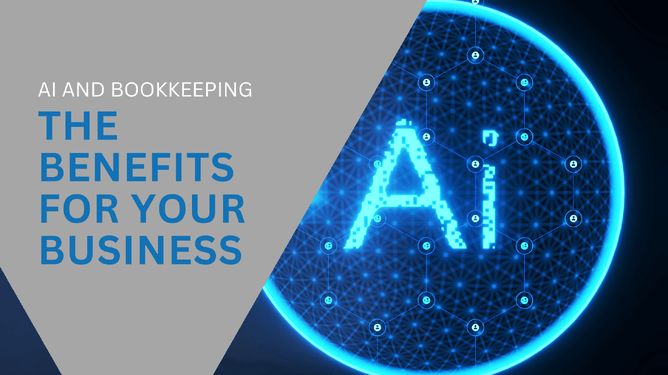AI in accounting and bookkeeping primarily involves predictive technology that can automate routine tasks and analyse vast amounts of data quickly. Even though generative AI is still an evolving technology, AI technology - especially in accounting software - has been around for a while.
What does AI mean for business owners who work with a bookkeeper? Let's take a look at how AI is changing the role of the bookkeeper and what you can expect as a business owner.
What is AI in Bookkeeping?
AI is a fast-growing phenomenon, with new applications emerging daily and has become the new norm for a lot of industries.
AI uses software that recognises patterns in data (i.e., spending habits or financial anomalies) and uses these patterns to forecast future trends. In bookkeeping, AI can help with sorting and organising data, automating labour-intensive tasks like data entry, and enhancing the accuracy of financial reporting and forecasting.
Also as AI becomes more advanced and takes on more manual tasks, the role of the bookkeeper will become more valuable. Bookkeepers will increasingly serve as advisors and fact-checkers for accurate information. Furthermore, your bookkeeper will provide that personal touch that AI programmes cannot.
The Benefits for Your Business
Programmes like Xero and MYOB use AI tools to scan and capture data from electronic and hard-copy documents and automatically enter this into your ledger.
AI can streamline your reconciliation process by offering matches between statements and ledger entries, it can automate reminders for outstanding invoices, and search your bank account for deposits that match an outstanding invoice. AI can also provide projections for future cashflow, by analysing accounts receivable and payment patterns.
Working with a bookkeeper who leverages AI offers several advantages:
Increased Efficiency: AI automates repetitive tasks like data entry and reconciliation, allowing your bookkeeper to focus on strategic aspects of your finances.
Enhanced Accuracy: AI's ability to analyse data with precision reduces the risk of human error and fraud.
Cost Savings: Automating routine tasks can save you money and potentially allow your bookkeeper to provide strategic planning advice.
Real-Time Insights: AI in accounting software provides up-to-date financial information, helping you make informed, data-driven decisions.
Improved Security: AI can detect patterns indicative of fraudulent activity, improving your overall financial security.
AI and the Future of Bookkeeping
AI is unlikely to replace the role of the bookkeeper. While AI excels at handling data and performing repetitive tasks, it cannot replace the human touch in interpreting data, and the personalised advice of a bookkeeper.
And while technology comes naturally to some, others may find it challenging. Transitioning to AI-powered software requires time and training. For business owners, this means partnering with a bookkeeper who utilises AI and can offer that guidance and support.
To make the most of AI-powered tools for your business I recommend using them for repetitive tasks like data entry, streamlining ledger entries and reconciliation processes. This leaves your bookkeeper free to focus on providing budgeting, strategic planning, and financial advice.
AI is revolutionising the way a lot of businesses work, and not just in financial services. It’s improving efficiency and accuracy, and for business owners, making it easier to make more informed decisions about your business.
If you’d like to learn more about how AI and accounting software can benefit your business, get in touch!


